How to Write About the Author Page/Box [With 20 Examples]
The “About the Author” page is the part of your website where you introduce and discuss your work and persona as an author. So how can you craft a memorable author page or author box that will keep your reader’s interest alive?
This article will cover exactly how to make an “about the author” page that gets people interested and excited about you and your personal brand.
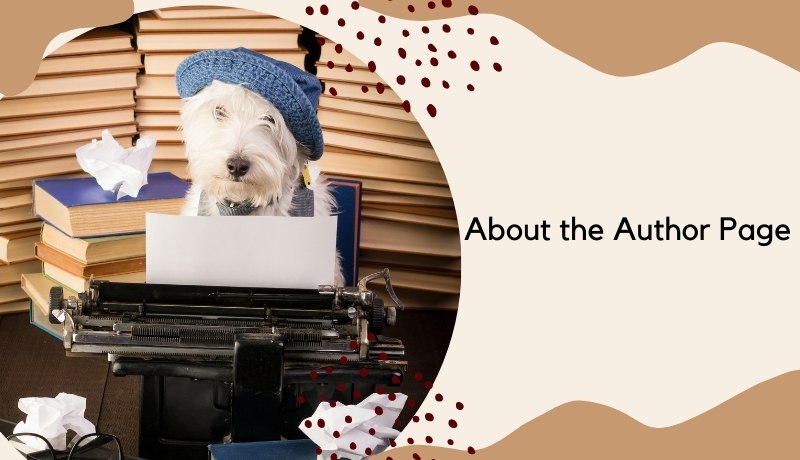
Contents
First of all, a great author bio can prove to your soon-to-be-reader that you’ve got the background and the authority to tell a story that will keep them turning the page. This is your chance to make a pitch and sell yourself a bit, and drive people to your web site.
Secondly, E-A-T (Expertise, Authority, and Trustworthiness) is frequently talked about as the next big thing in Google’s algorithm, and one of the most common ways to lend authority to your content is to have it written by an expert. Or at least someone who appears to be an expert. This is why it is advised to disclose your authors. Currently, the best practice for disclosing content authors is to have them stated on the article page (like with an author box). And then have the author’s name linked to a dedicated author’s bio page elsewhere on your website.
All in all, authors help establish your website as an authority on the subject matter, as both users and Google would identify the content on the website as trustworthy information written by someone with significant expertise.
1. Write in Third Person
Don’t use first-person pronouns like I and me. A first-person bio is hard for MCs, journalists, and podcast hosts to use. Writing I and me instead of your name also hurts your search rankings. You want to use your full name multiple times on your “About the author” page so that it will rank when someone searches for you.
Write your About page in third person, even if the rest of your site is written in first person.
2. Highlight Expertise & Trustworthiness
The most important element you need highlight in the author page is your expertise.
So summarize your expertise on the topic that you are writing about. For example, if the topic you are writing about is SEO, letting your audience know about your experiences and achievements in SEO.
Note: No one likes a braggart. But, you also need to make sure you do talk about why you are an expert. When writing your about page, keep humility in mind and share your certifications or achievements, but don’t do so in a boastful manner.
As you build your online presence, you will need different versions of your bio. They’ll vary in length depending on where you place them. So to start, don’t feel like you have to fit your entire life story into one bio.
First of all, let’s see how to write the long bio for a detailed author page.
In your long bio, you can include information about:
- Years of experience working in relevant areas.
- Published works.
- Citations.
- Degrees and/or titles.
- Conference appearances and other speaking engagements.
- Media coverage.
- Past jobs.
Everything on your author page needs to be relevant to you as an author. The implicit question you are answering with your author page is ‘who are you as an author?’
While you want the short bio to appear on the article page, I think it is easier to write it second, after you’ve written your long version.
You can take the key elements from your long bio to write your short bio. Be concise, only including the most important and relevant information for the reader.
5. Include a Good Photo
Adding a picture of yourself as part of your bio can be a great visual way to show the reader that there is a real human behind the words that they have read.
Including links to social media on author pages is also another great way for users to be able to access more content from you, as you can link your personal or business website, and even your social media profiles.
It can also help people to find your social media handles to tag you and/or your company into their posts. As well as a means to help readers continue on the discussion.
7. Inject Your Personality
Sharing personal interest and humor can make an author bio page more engaging and interesting.
To collect the author page examples, I decided to visit some of my favorite websites from around the web world to see how it’s supposed to be done.
Here, I select 20 examples of author page and author box I like best. The first 10 are good examples of author page, and the another 10 are good example of short author bio in the author box at the top or bottom of each post.
#1. Brain Dean from Backlinko
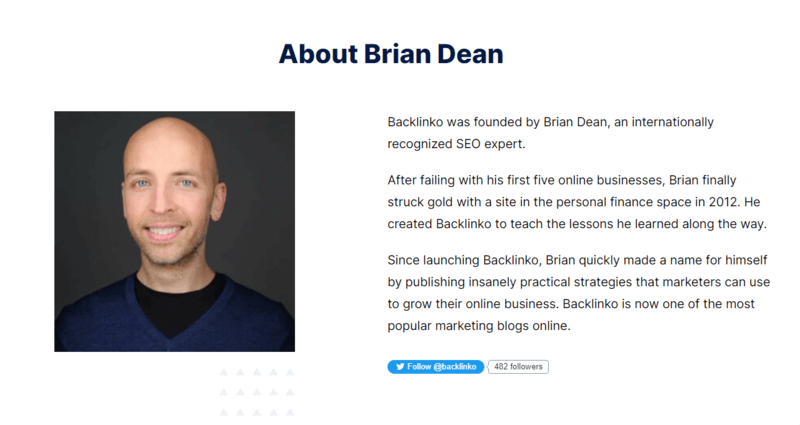
#2. Navah Hopkins
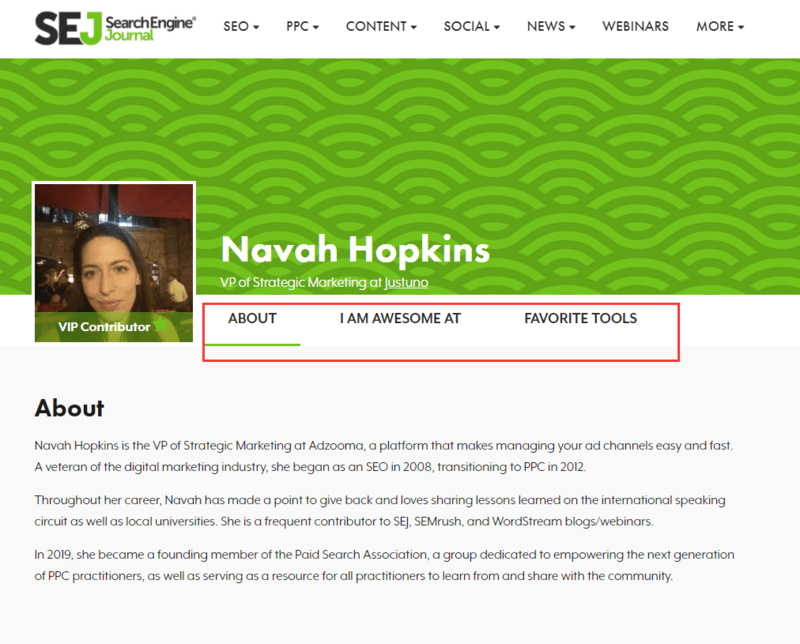
#3. Neil Patel

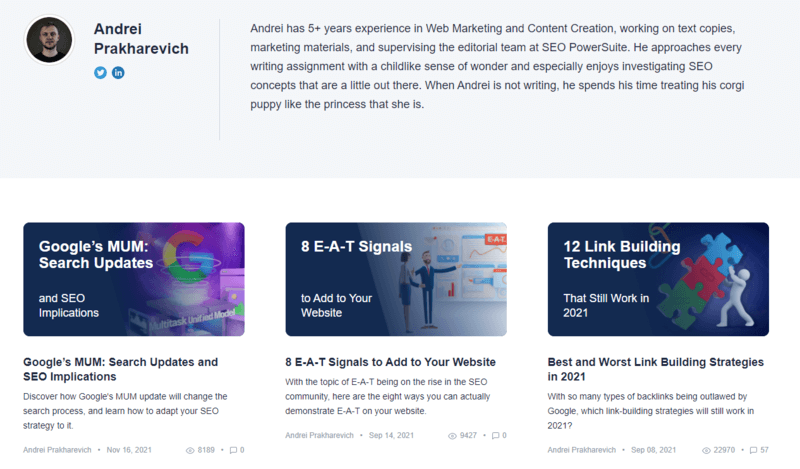
#5. Adham Dannaway
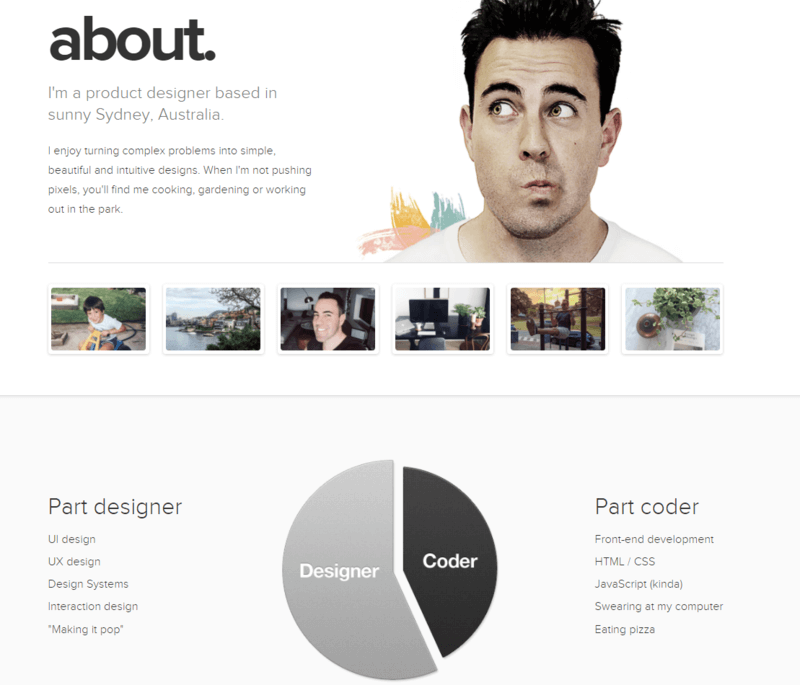
#6. Matt Mullenweg
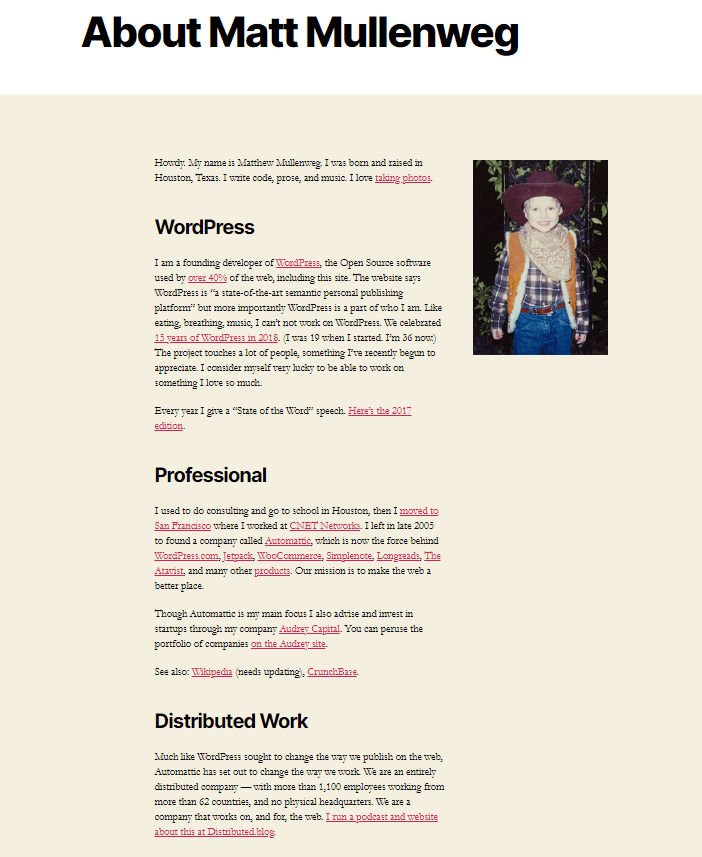
#7. James A. Reeves
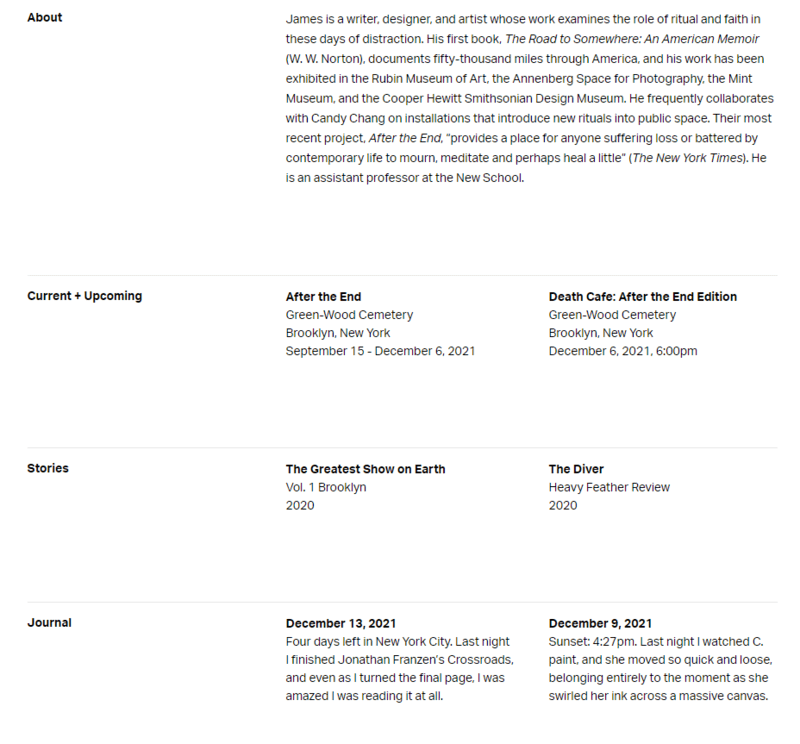
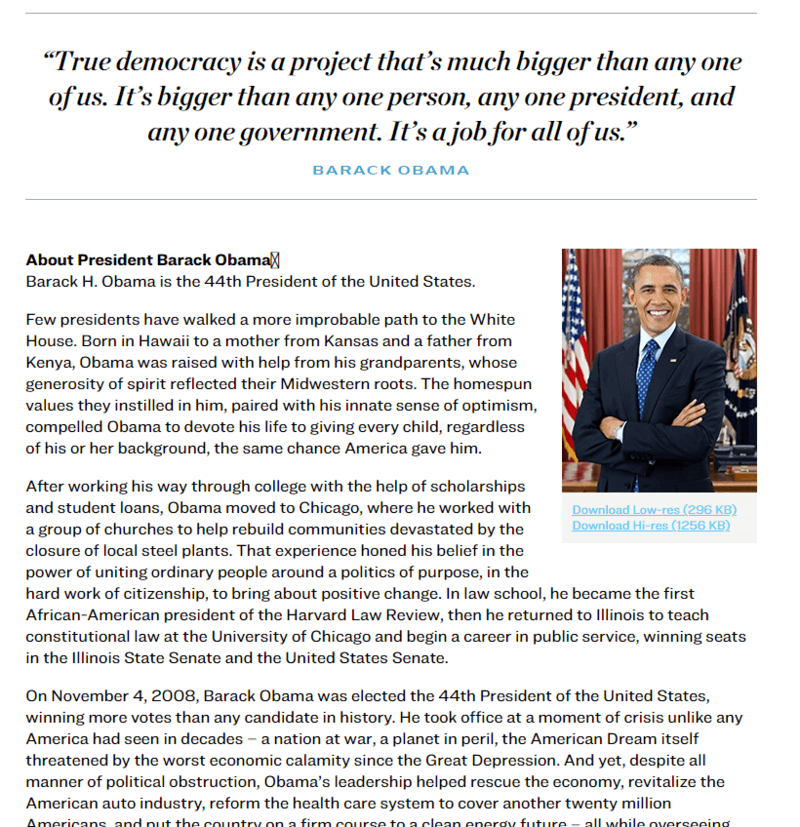
#9. Randy Duermyer
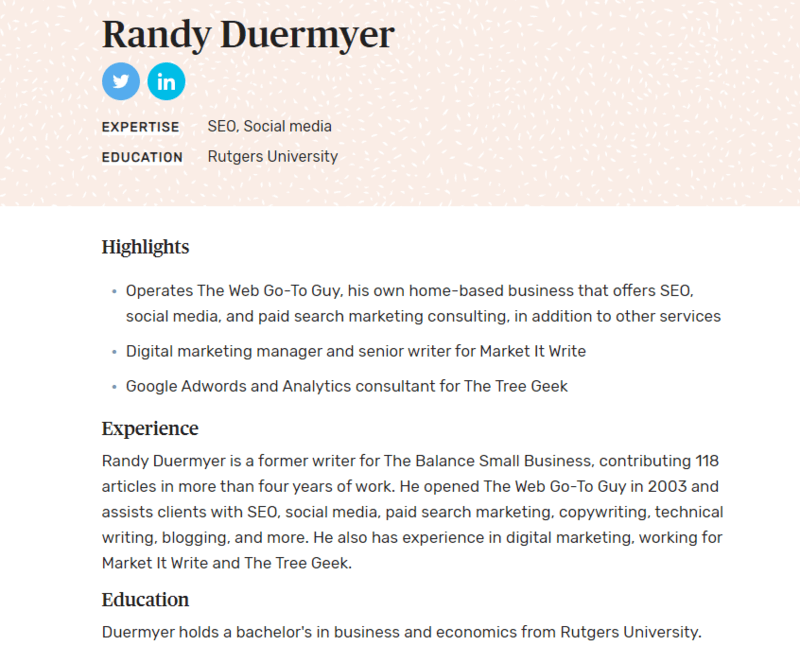
#10. Adam Barone
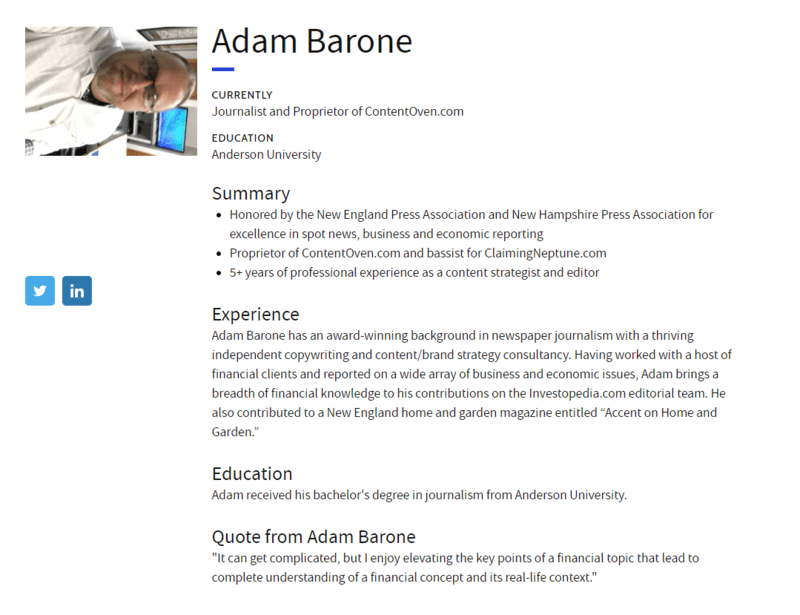
#11. Barry Schwartz

#12. Kaspar Szymanski
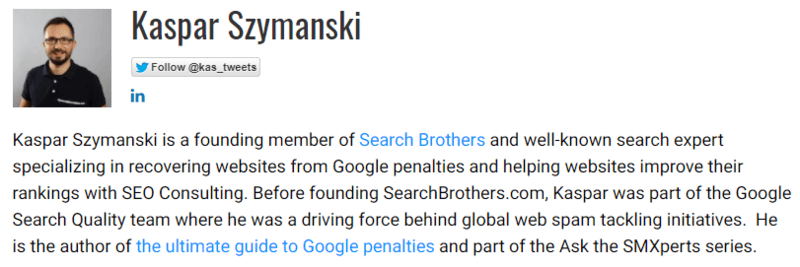
#13. Sean Si

#14. Sonia Simone

#15. Sarah Aboulhosn

#16. James Brockbank
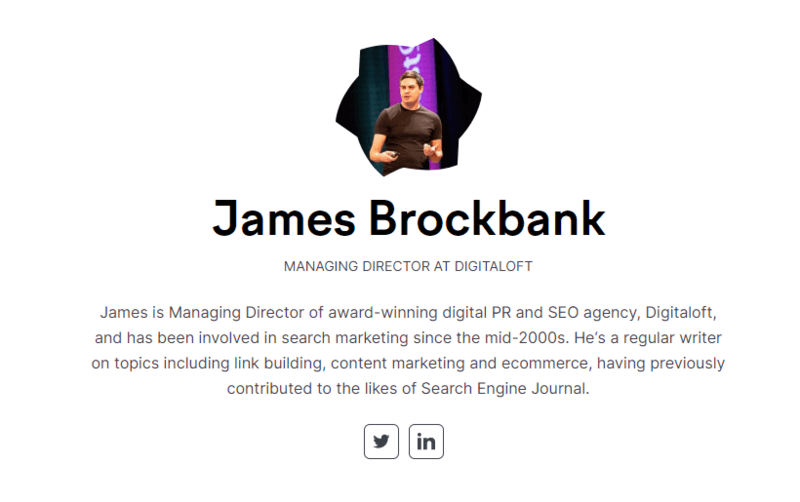
#17. Meredith Wood
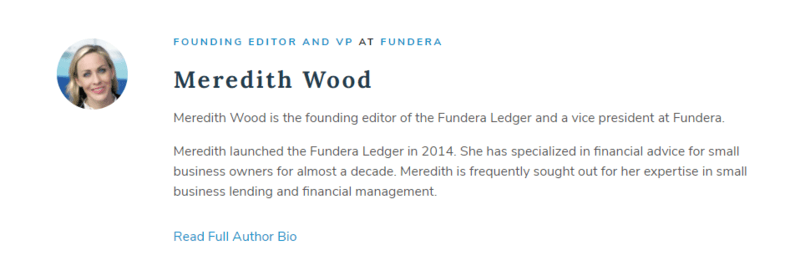
#18. Irina Weber

#19. Braveen Kumar

#20. Werner Geyser

